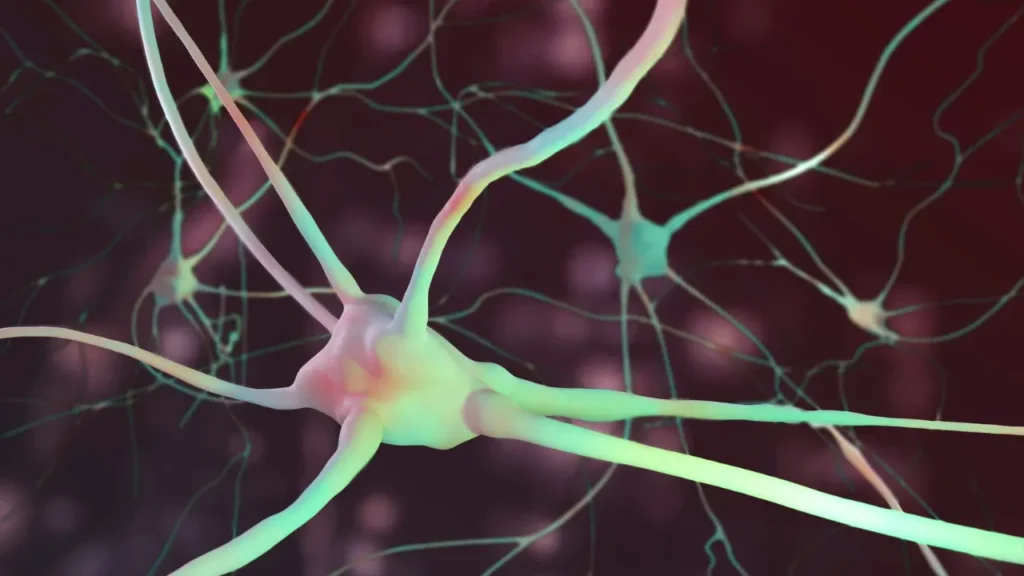Tagetes, or marigolds, are becoming an increasingly interesting topic for scientists in the field of nootropic supplements and cognitive enhancement. This in-depth analysis explores Tagetes’s complex properties, clarifying its chemical makeup, health advantages, recommended dosages, possible adverse effects, interactions with other substances, and recommendations for responsible usage. By summarizing the literature, this article seeks to give readers a thorough understanding of Tagetes as a nootropic supplement for improving alertness, focus, and cognition.
You May Also Like:
NutriRise Ashwagandha Root Capsules Reviewed: A Leading Herbal Stress Support Product
WILD CARROT: Benefits, Dosage, Side Effects, Drug Interactions, And Other Important Information
Tagetes: Benefits, Dosage, Side Effects, Drug Interactions, and Other Important Information is an original (NootropicsPlanet) article.
Nature of Tagetes
Tagetes is a genus of annual or perennial, usually herbaceous plants in the sunflower family, generally known as marigolds. It is native to the Americas and is recognizable by its vivid yellow, orange, and occasionally red flowers. Several kinds are grown all over the world for their decorative appeal and possible health advantages. The genus is valued for its beautiful appearance and its abundance of bioactive substances, including flavonoids, zeaxanthin, lutein, and volatile oils, all supporting the plant’s health-promoting qualities.
Health Benefits of Tagetes
Due mainly to their high lutein content, recent studies have shown the potential of Tagetes extracts to enhance cognitive functioning. It is thought that lutein builds up in the brain, where it has anti-inflammatory and antioxidative properties that shield neural tissues from oxidative stress and inflammation, both of which are known to impede cognitive abilities. Additionally, it has been demonstrated that lutein increases neuronal efficiency, which benefits brain function metrics, including verbal fluency, reaction time, and memory recall.
A groundbreaking study published in the “Journal of Aging Research” revealed that older adults with greater levels of lutein had brain functions similar to those of younger people. This indicates that lutein may prevent and even repair some age-related cognitive loss. These findings underline the potential of Tagetes as a nootropic supplement for enhancing alertness, focus, and cognition, particularly in aging populations.

Chemistry of Tagetes
Numerous bioactive chemicals are abundant in Tagetes species, particularly Tagetes erecta (African marigold) and Tagetes patula (French marigold). These include flavonoids, essential oils, and carotenoids like lutein and zeaxanthin. Lutein, the principal active ingredient, is a xanthophyll carotenoid that is well-known for its antioxidant qualities and function in preserving eye health. Its abilities to improve cognition, however, are very intriguing. Understanding Tagetes’ physiological impacts depends on its chemical makeup because these substances have intricate interactions with the body’s biological systems that affect cognitive functions.
Physiological Mechanism of Action
The cognitive enhancement effects of Tagetes, mainly through its active component lutein, can be understood through its multifaceted physiological mechanisms of action:
Antioxidant Activity: One of the primary carotenoid pigments in Tagetes, lutein, has strong antioxidant qualities. It scavenges free radicals and shields cells from harm brought on by oxidative stress. Regarding the state of the brain, oxidative stress has a significant role in the development of neurodegenerative illnesses and cognitive decline. By scavenging free radicals, lutein protects neural cell integrity and enhances cognitive processes, including memory, attention, and problem-solving.
Anti-inflammatory Effects: Chronic inflammation is another unhealthy condition linked to cognitive decline. It has been demonstrated that lutein reduces inflammation by changing inflammatory pathways and preventing the synthesis of pro-inflammatory cytokines. By lowering inflammation inside the brain, this activity safeguards neuronal tissues and promotes cognitive health.
Enhancement of Neural Efficiency: Lutein, which builds up in the macula and brain, is believed to enhance the effectiveness of neuronal processing. By promoting neuron survival and fortifying synaptic connections, it helps improve signal transmission. This increase in neuronal efficiency is thought to influence better overall cognitive performance, quicker information processing, and quicker reaction times.
Protection of Visual Function: Because lutein is concentrated in the macula, it is essential for blocking blue light and shielding the eyes from oxidative damage caused by light. Because there is a close relationship between visual and cognitive functions, consuming enough lutein to maintain good visual health can indirectly improve cognitive processes by lowering eye strain and enhancing visual information processing.
Modulation of Brain Plasticity: Emerging evidence suggests that lutein may influence brain plasticity, the ability of the brain to change and adapt in response to new information, experiences, or environments. Lutein’s antioxidant and anti-inflammatory effects contribute to a neural environment conducive to plasticity, potentially facilitating learning and memory formation.

Optimal Dosage of Tagetes
For Tagetes extract to maximize benefits and minimize hazards, the ideal dosage must be established for cognitive enhancement. Most clinical trials have employed lutein at doses between 10 and 20 mg daily, frequently in conjunction with another carotenoid found in Tagetes called zeaxanthin. It is important to remember that each person will react differently to Tagetes supplementation, and the ideal dosage may vary depending on age, preexisting cognitive performance, and the amount of carotenoids consumed in food. It is, therefore, advised to start with a smaller dose and increase it gradually while keeping an eye out for any adverse effects.
Side Effects of Tagetes
When taken in amounts typically found in a diet, Tagetes is generally considered safe. However, some people may experience adverse effects when taking it as a supplement, particularly at high doses. These can include skin irritation, allergic responses, and gastrointestinal distress. Furthermore, there is a chance that it will interfere with prescription drugs or medical conditions that are vulnerable to the anti-inflammatory or antioxidant effects of the high concentration of bioactive substances it contains.

Potential Substance Interactions with Tagetes
Tagetes is typically safe in food amounts, but it’s important to be aware of any possible interactions with other drugs. In particular, its ingredients may intensify anticoagulant medications’ effects, raising the risk of bleeding and interfering with their effectiveness. Thus, before beginning a Tagetes supplement, people taking anticoagulant medication or those with coagulation issues should use caution and speak with medical authorities. Furthermore, due to its antioxidant qualities, Tagetes may interact with chemotherapy medications, perhaps reducing their effectivenesss.
Best Responsible Uses of Tagetes
Anyone considering utilizing Tagetes as a nootropic supplement must take a prudent stance. This entails determining the lowest effective dose to begin with, escalating it gradually as necessary, and monitoring for any negative effects. To guarantee safety and effectiveness, it is crucial to speak with a healthcare professional before starting any supplements, particularly for people who are on medication or have preexisting medical conditions.
Additionally, getting Tagetes supplements from reliable suppliers that offer goods that have undergone potency and purity testing is critical. Supplements with standardized extracts can ensure consistent dosing because natural products can vary in the concentration of their active components.
Tagetes:
Conclusion
In traditional medicine, tagetes has been used to alleviate digestive issues and skin conditions and promote wound healing. Some preliminary studies suggest that tagetes extracts may have cytotoxic effects on cancer cells and could potentially be used in cancer therapy. While tagetes shows promise for various health applications based on traditional use and preliminary research, more comprehensive studies, including clinical trials, are necessary to understand its potential health benefits and mechanisms of action fully. Individuals interested in using tagetes for medicinal purposes should consult with a healthcare professional for personalized guidance and recommendations. Standardized preparations and appropriate dosages should also be established to ensure safety and efficacy.

References:
- Generation and physiological characterization of genome-edited Nicotiana benthamiana plants containing zeaxanthin as the only leaf xanthophyll. Retrieved from: https://www.ncbi.nlm.nih.gov/pmc/articles/PMC10556183/
- Nootropic Effects of 7-Isoprenyloxycoumarin and Herniarin from Tagetes lucida on Lipopolysaccharide-Induced Neuroinflammation. Retrieved from: https://link.springer.com/article/10.1007/s43450-024-00518-7
- Plant extracts from the tagetes genus and uses of same. Retrieved from: https://patents.google.com/patent/US20200375880A1/en
Important Note: The information contained in this article is for general informational purposes only, and should not be construed as health or medical advice, nor is it intended to diagnose, prevent, treat, or cure any disease or health condition. Before embarking on any diet, fitness regimen, or program of nutritional supplementation, it is advisable to consult your healthcare professional in order to determine its safety and probable efficacy in terms of your individual state of health.
Regarding Nutritional Supplements Or Other Non-Prescription Health Products: If any nutritional supplements or other non-prescription health products are mentioned in the foregoing article, any claims or statements made about them have not been evaluated by the U.S. Food and Drug Administration, and such nutritional supplements or other health products are not intended to diagnose, treat, cure, or prevent any disease.


